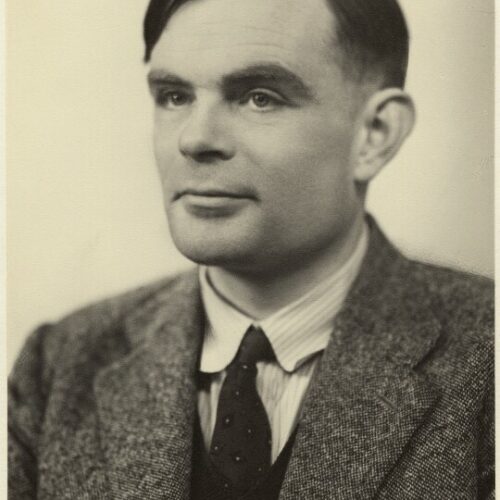

We can only see a short distance ahead, but we can see plenty there that needs to be done.
Alan Turing, ‘Computing Machinery and Intelligence’ (1950)
Alan Turing was one of the UK’s most influential mathematicians, and a pioneer of computer science. His wide-ranging interests and formidable intellect drew him to innovation across diverse fields of thought and theory, but his treatment at the hands of the Government he had served, on the grounds of his sexuality, marred his final years and contributed to his early death.
An atheist, Turing could not square religious faith with the commitment to reason and logic which propelled his life and career. But he remained passionately interested in the world and its apparent mysteries, and awake to the possibilities of the human mind and the power of collaboration. A remarkable man and an inspiring humanist, in 2021 Turing became the face of the £50 note.
The isolated man does not develop any intellectual power. It is necessary for him to be immersed in an environment of other men… He may then perhaps do a little research of his own and make a very few discoveries which are passed on to other men. From this point of view the search for new techniques must be regarded as carried out by the human community as a whole, rather than by individuals.
Alan Turing, ‘Intelligent Machinery’ (1948)
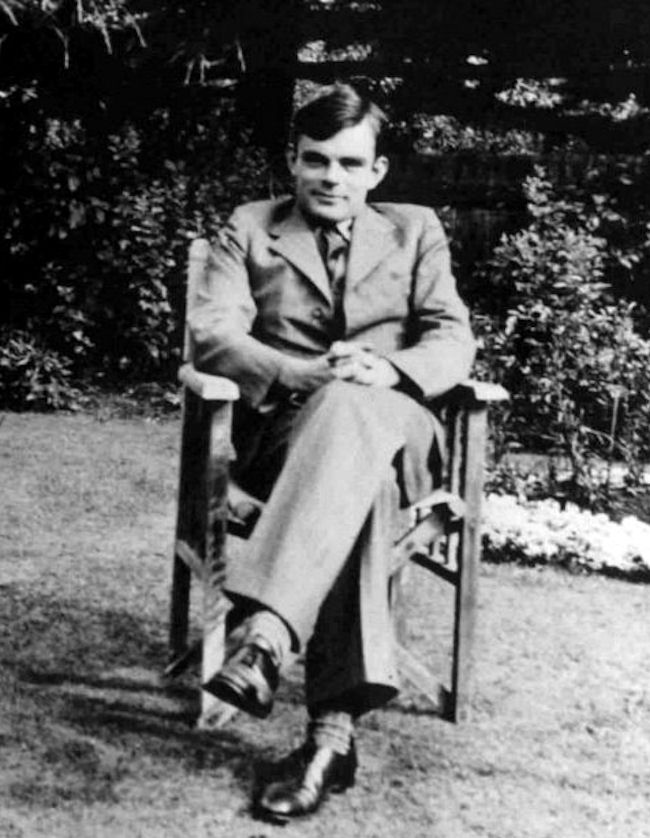
Alan Mathison Turing was born on 23 June 1912 in Paddington, London. He displayed an early, and extracurricular, interest in science, particularly influenced by a book called Natural Wonders Every Child Should Know, given to him by his mother. At King’s College, Cambridge he revelled in intellectual rigour and social opportunities, obtaining a distinguished degree in 1934, and becoming a Fellow the following year. Turing’s attentions ranged over quantum mechanics, probability theory, and mathematical logic, the last of which provided him with opportunities to explore questions as yet unanswered. As Andrew Hodges has written, ‘Alan Turing’s story was not one of family or tradition but of an isolated and autonomous mind’. Such a mind led Turing not only into the pioneering work he conducted in maths, code-breaking, and computer science, but also to a rejection of religion. His was, in Hodges’ words, ‘a life seeking freshly minted answers to fundamental questions.’
Applying seemingly abstract logic to practical problems was at the heart of Turing’s drive and his genius. His concept of the ‘Turing Machine’, theorised in response to the ‘decidability’ problem, thus became foundational to modern theories of computation and computer science. The decidability problem asked whether a method could exist for determining whether a mathematical assertion was provable. Drawing on what could be achieved by a human being working methodically, Turing hypothesised these actions taking place mechanically: a machine capable of performing a certain set task, or carrying out instructions in a standard written form. The ‘Universal Turing Machine’ took this further still, imagining a machine capable of mechanically interpreting different sets of instructions to perform different tasks: an abstract idea which predated the necessary engineering developments by nearly a decade.
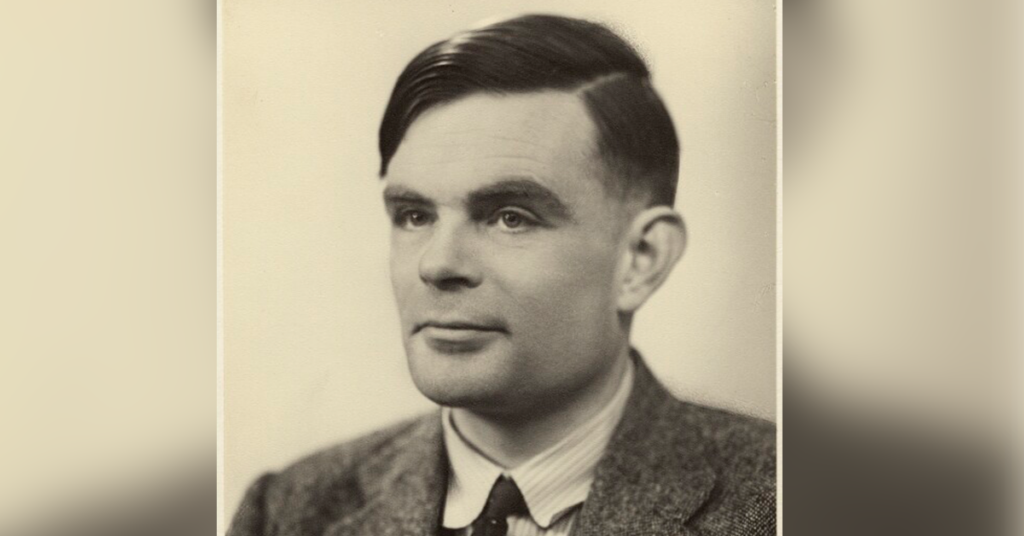
Arriving in September 1936, Turing spent two years at Princeton University, working on algebra, number theory, and completing a PhD. The prospect of war influenced Turing in his decision to study ciphers, through which he would go on to make a major contribution to the war effort. Rather than stay in America, Turing returned to Cambridge in 1938, and for the duration of the Second World War worked at Bletchley Park. There, he played a decisive role in decrypting the German Naval Enigma and, alongside a team of others at Bletchley, made significant contributions to the Allies’ success.
After the war, Turing joined the National Physical Laboratory, and went on to become Deputy Director of the Manchester University computing laboratory. In 1950, he published ‘Computing Machinery and Intelligence’ in Mind, a seminal work on the philosophy and possibility of artificial intelligence. In 1951, Turing was elected a Fellow of the Royal Society. The following year, in March 1952, he was arrested and convicted on charges of ‘gross indecency’, for his relationship with another man. Never abashed or secretive about his sexuality, Turing offered little defence or denial, seeing nothing wrong in his actions. He accepted hormone injections in order to avoid a prison sentence.
Though Turing continued his work on subjects that fascinated him, his ongoing employment with the successor body to Bletchley Park was severed on the grounds of his homosexuality, which rendered him ineligible for security clearance. On 8 June 1954, aged forty-one, Turing was found dead in his Wilmslow home. The inquest ruled suicide by cyanide, a half-eaten apple lying nearby.
This is only a foretaste of what is to come, and only the shadow of what is going to be. We have to have some experience with the machine before we really know its capabilities.
Alan Turing, interviewed for ‘The Mechanical Brain’ in The Times (1949)
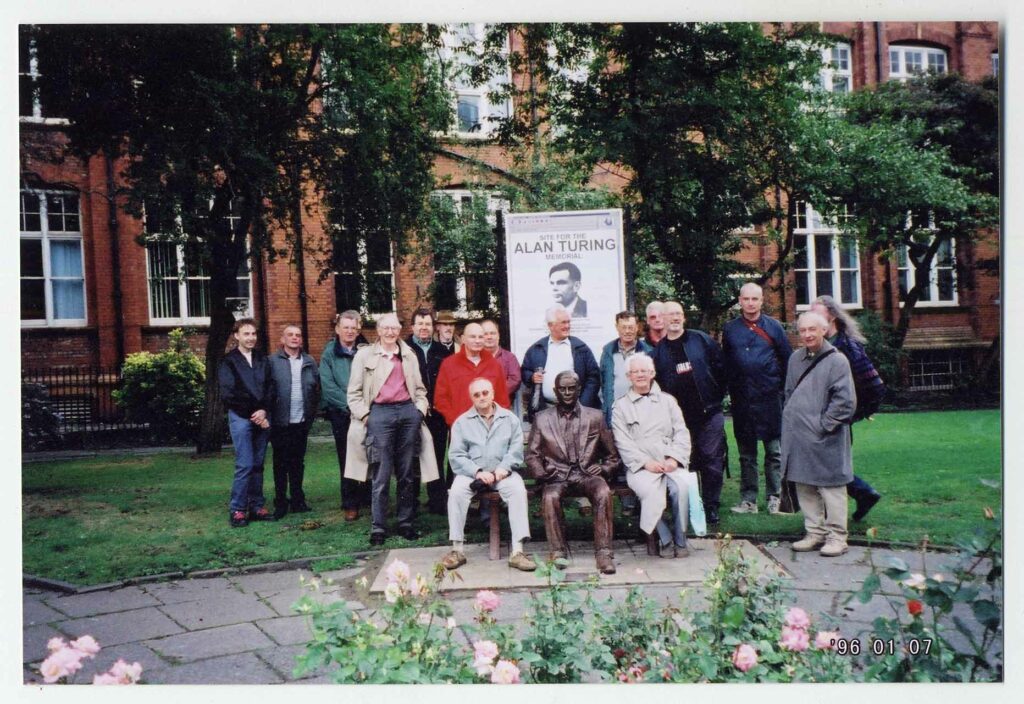
Alan Turing was a visionary thinker and a remarkable human being. He was also a private one who, though never seeking to conceal his sexuality or identity, sought the freedom to live un-judged, and to pursue the work which mattered to him: to play his part in the innovations of the ‘human community’. As Andrew Hodges wrote in the closing pages of his biography, ‘with so few messages from the unseen mind to work on, his inner code remains unbroken’, but his legacy – for humanists, for scientists, and for the LGBT community – remains undeniable.
Alan Turing: the Enigma by Andrew Hodges and accompanying website
Alan Turing at the Freedom from Religion Foundation
English Heritage blue plaque in Maida Vale, London
The Alan Turing Institute: What Alan Turing means to us
Humanists International: Gay Humanists welcome Richard Dawkins’s support for Alan Turing
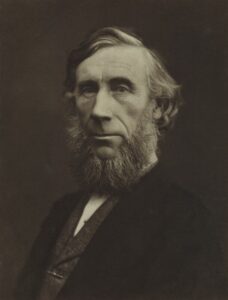
All religious theories, schemes and systems, which embrace notions of cosmogony, or which otherwise reach into the domain of science, […]
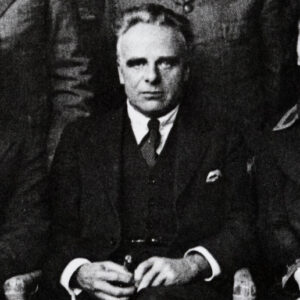
Our goal must be the good of the whole human society. Henry Noel Brailsford, Olives of Endless Age: being a […]
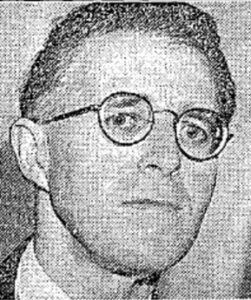
I am a humanist, a rationalist. My mother said to me, some weeks before she died, that she would die ‘an unrepentant […]
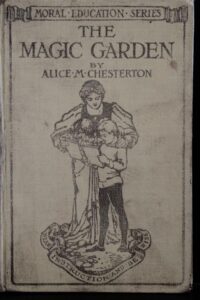
Its aim will be to secularise education and make moral training the chief aim of the school life. A great […]